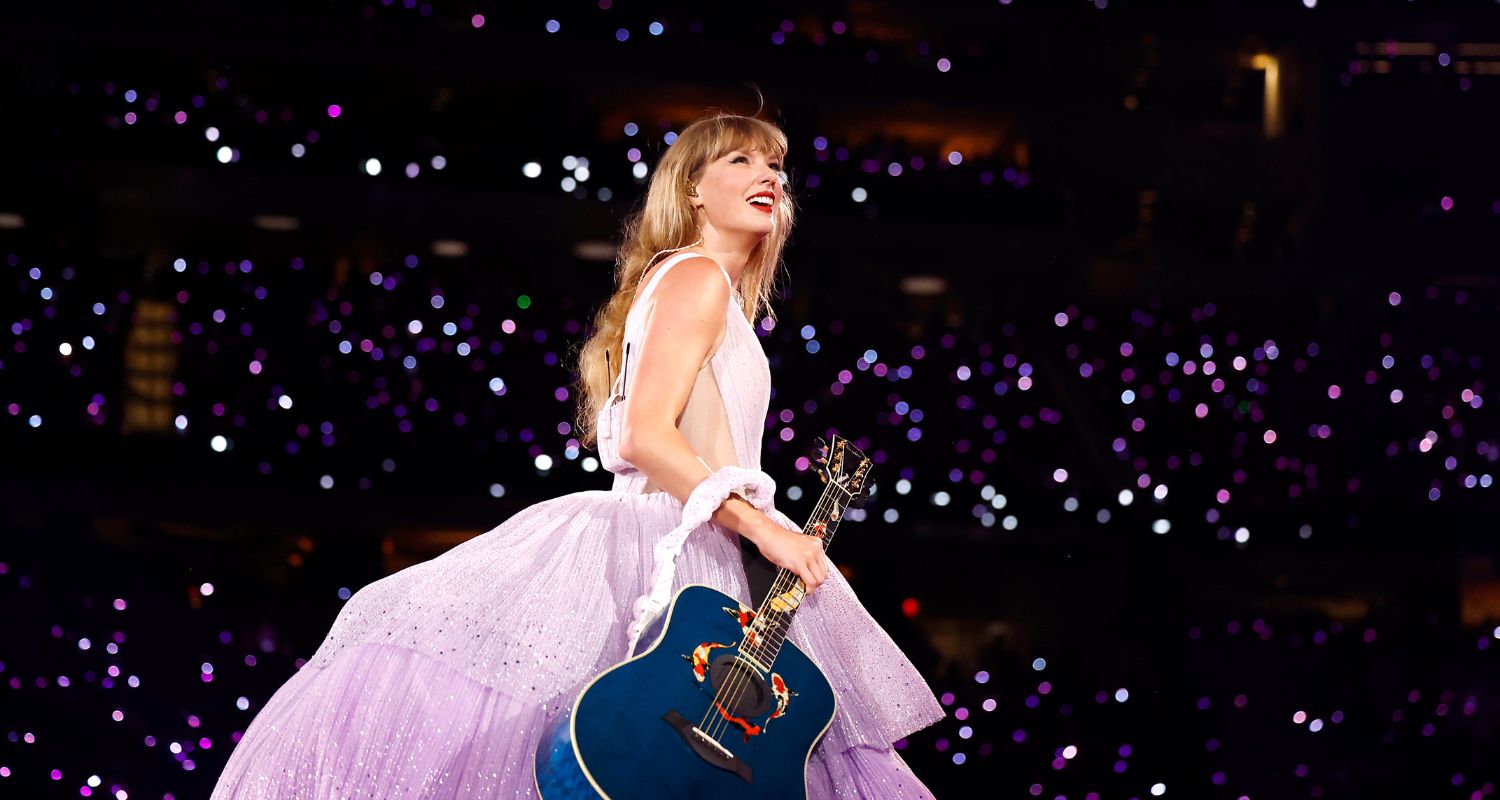On October 9, 2012, Prime Minister Julia Gillard stood up in parliament to deliver her impassioned misogyny speech. The speech was in reaction to opposition leader Tony Abbott accusing Gillard of sexism, and it was a watershed moment not only for women in politics, but for all Australian women. Today, the speech serves not only as a reminder of how far we’ve come, but a blueprint for how far we still have to go.
A decade on, the speech has gained a new life on TikTok, as well as inspiring a plethora of tea towels and other merchandise. But far more importantly, her words continue to inspire women all around the world to stare down sexism and misogyny in their own lives.
To commemorate the game-changing and historic speech, marie claire spoke to two high-profile women, the federal Minister for the Environment and Water, Tanya Plibersek, and the activist and founder of Teach Us Consent, Chanel Contos, who, despite being a generation apart, have both been inspired by Gillard’s stirring words. For Plibersek, who shares a decades long friendship with the former PM and was present in the House of Representatives when the world was called to attention, it’s a moment she will never forget. And for Contos, who also shares a close friendship with the former prime minister, her mentor Gillard’s words are a stark reminder that it takes only one person to enact change.
Tanya Plibersek

When Julia Gillard got up to speak in the House of Representatives chamber, it was like watching Boudica go into battle against the Romans. You knew you were watching a moment in history and it was electrifying. The mood changed from the Government being under pressure to the spotlight shifting to the Leader of the Opposition Tony Abbott and the sexism and misogyny he was guilty of. I felt this enormous sense of relief, because I was so sick of the behaviour and the way the Liberals spoke about Julia.
Before the speech, the Labor women had decided that we weren’t going to get caught up defending Julia against sexism; we would simply get on with the job and hope that all the sexist bullshit would fall away. It didn’t. Finally saying ‘enough is enough’ felt like a real turning point.
I think the #metoo movement was similar in that women collectively felt that they had just had enough. Julia wasn’t just speaking out for women in politics, but for every woman, in every workplace, who has put up with sexist bullying over the years, and had told themselves ‘I’m going to get on and do the job.’
The speech gave a voice to all of that frustration. It was a ‘this is what it looks like to stand up for yourself’ moment. Julia gave a voice to millions of women around the world and millions of women felt it. That feeling – ‘I’ve had a gut full –‘ I think every woman feels that eventually.
Listening to the speech in parliament, I also felt genuine sadness for Julia. As she spoke about the horrible comments that had been made about her father dying of shame and making an honest woman of herself, I was struck by how much she had had to put up with. The pornographic menu that had been written by these Young Liberal blokes was laughed off as ‘just bit of good fun’.
In the past, when I had called out sexism, people would say ‘stop paying the gender card.’ I found that any time I stood up for Julia, or any time any other female MPs stood up for Julia, the Liberals would call us the ‘handbag hit squad.’ Which is just another way of silencing women.

As a woman in politics, the speech marked a change in the way I navigated the world. Previously, I had accepted this notion that if you just get on with the job, the sexist bullying will fizzle out and eventually people will just accept you for being good at your job. The idea that your work will speak for itself, and the sexism will wear itself out eventually, is something I’ve had to unlearn. I decided from that moment, whenever I see or observe sexism, I have to call it out straight away. Not for myself, but for the next generation of women who are thinking about a career in politics. I want them to be able to look at the parliament and know that there is a place here for them.
It’s been a decade since the misogyny speech was delivered and I’ve seen a lot of important change happen, but there’s still a long way to go. Whatever our Australian community looks like, our parliament needs to reflect that. I’m proud of the environment we’ve created in the Labor Party, which is now 52% female in the Federal Parliament.
However, it’s all very well for Members of Parliament to say the culture has changed, but we need to make sure that it’s changed for the most junior political staffer, the cleaners, the journalists, the drivers, the gardeners and the people working in the cafeteria.
It’s not good enough just to change the culture for the people who are, by definition, more powerful. It’s women like Chanel Contos and her generation of young activists that gives me so much hope that this country is changing and that it will be a genuinely more equal country in the future. And that’s not just good for women, but men too. Gender stereotyping is a jail for everyone, but we’ve got the keys, and we don’t have to keep doing the same thing. We know how to change and it’s young women like Chanel who will lead the way.
Chanel Contos

I was standing in my kitchen when I first heard the misogyny speech on TV. I was 14, and I definitely didn’t know what misogyny or feminism was in any sort of depth. At that time in my life, there were people around me who had the mindset that a woman shouldn’t be the Prime Minister, and those kinds of comments, and criticisms of gendered things like clothing, seemed quite normal to me. I was in a social situation where it was made clear to my peers and I that women were subordinate to men.
It was impossible to go to a party without someone grabbing your arse or someone saying something inappropriate to you, and we didn’t think anything of it. The speech really changed the conversation and challenged my perception of what it means to be a woman in society. The next day at school, everyone was talking about misogyny and what that word meant, so I started to learn from my peers. It’s gut-wrenching now to think about the sexism Julia endured and how we were all complicit.
In the decade since the speech, we’ve seen a massive increase in the representation of women in politics and so many women doing the work to point out the sexist culture in and outside of parliament. Julia made it so that a generation of Australians grew up thinking that it’s normal for a woman to be Prime Minister, and that’s incredibly impactful.
That said, Australia has also regressed on its global rankings of gender equality to an embarrassing level and our gender pay gap has gotten wider. While misogyny still seeps into every corner of our society in such a pervasive and all-encompassing way, I think Julia’s speech was instrumental to creating a culture that doesn’t tolerate bystandership.

The next step is to address the normalised discrimination and microaggressions towards women, and the heightened effect on women of colour and women from lower socioeconomic backgrounds. A lot of people think that we’ve solved our gender-based problems because women can vote and because we’ve had a female prime minister, but the reality of being a woman today means you still walk into the office, and someone says, ‘smile honey, you look grumpy today’, being catcalled when you walk home at night and having people speak over you in a boardroom. It also means that when you point out any of the above, you get told you’re a crazy feminist and you need to chill out.
When I was like 18, I remember asking a very senior person for career advice and essentially being told, ‘don’t be someone who complains.’ Which was their way of saying in the corporate world, you’re going to experience sexual harassment, so if you want to make it, just don’t make a fuss. This teaching is something I’ve had to unlearn. We need to have more conversations about the small aggressions that have lasting effects on women and less on how men are losing out in the situation. Conversations are so pivotal in making cultural change. But you also have to be willing to take on new ideas and ways of thinking.
I speak to lots of young people and so often girls ask me ‘how are we supposed to stand up when we just get called a ‘feminazi’?’ – a term that’s so problematic for so many reasons. It’s cliche, but we need to normalise calling out bad behaviour and standing up for ourselves. I’m still in the process of being able to confidently speak up in situations because so much of my socialisation as a girl has been to be submissive and passive. It’s a lot easier to stand up for other people than yourself, which is why what Julia did was so incredible. Thanks to Julia paving the way, we can now take our turn.
This story originally appeared in the October issue of marie claire Australia.









